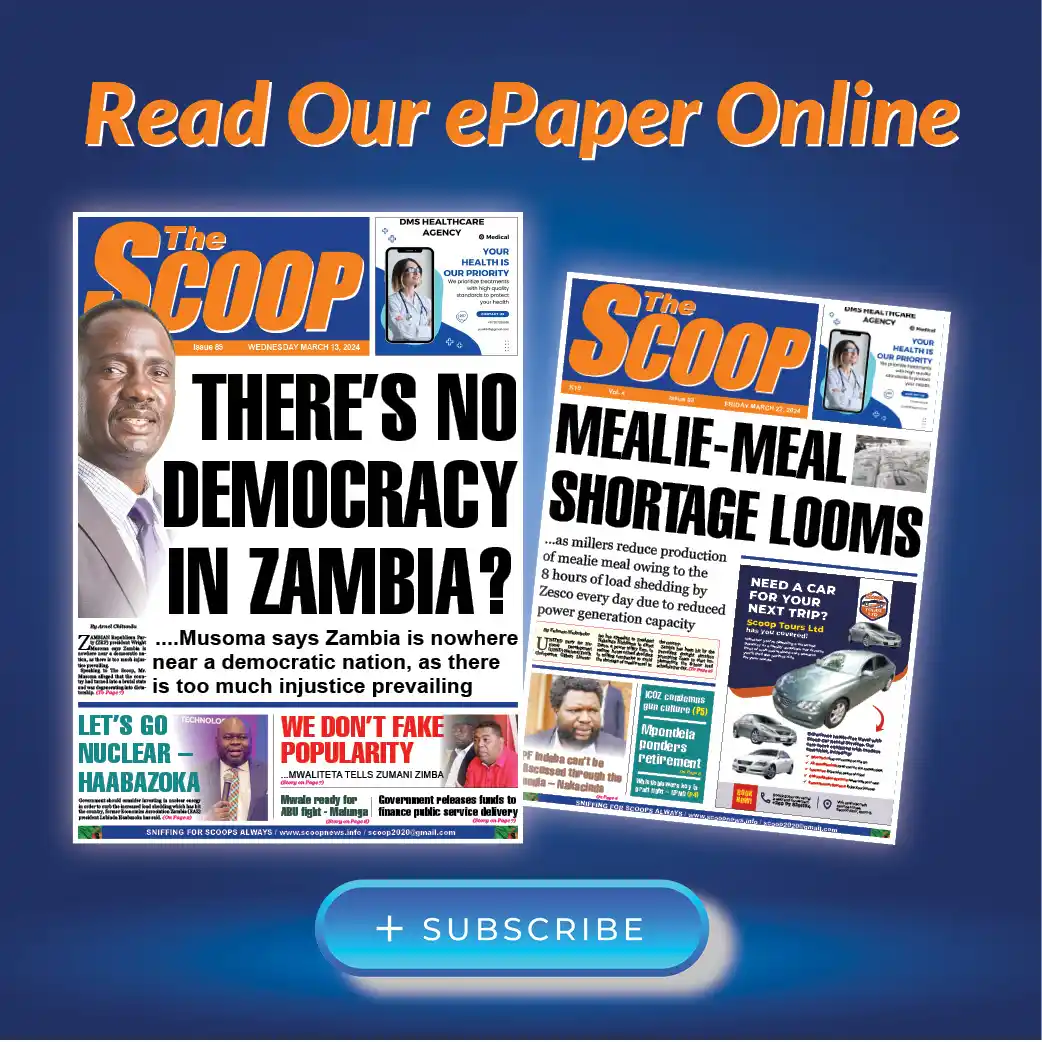By Fulman Mukobeko
ECONOMIC Association of Zambia (EAZ) Vice President Mbanji Milambo has described the decision by the Bank of Zambia (BoZ) to increase the Monetary Policy Rate (MPR) from 12.5% to 13.5% as a significant indicator of the Central Bank’s ongoing efforts to address prevailing economic conditions and ensure long-term stability within the country’s financial system.
Mr. Milambo viewed the adjustment in the Monetary Policy Rate as a critical tool used by Central Banks to control inflation and manage economic growth.
He said EAZ recognized that the BoZ’s decision articulated by Dr. Danny Kalyalya to raise the policy rate was driven by a need to address macro-economic challenges arising from price instability and high currency volatility.
“The move is meant to ensure that the inflation rate does not further drift from the target range of between 6-8% for the medium term,” Mr. Milambo noted.
He cited four implications of Rate Policy Rate increase as inflation control, impact on borrowing cost, strengthening the Zambian Kwacha, and economic growth.
On Inflation Control, Mr. Milambo said the primary rationale behind increasing the policy rate was to contain inflation.
Recent data indicated rising inflationary pressures due to factors such as increased fuel prices, higher food costs, and external economic shocks.
“By raising the policy rate, the BoZ aims to reduce consumer spending and borrowing, which can help to temper demand-pull inflation. This measure is crucial to preserving the purchasing power of Zambian households and maintaining economic stability,” he said.
Alluding to an impact on borrowing costs, Mr. Milambo regretted that the increase in the policy rate will inevitably lead to higher borrowing costs for individuals and businesses.
“While this can pose challenges, especially for SMEs and consumers with existing loans, it is a necessary trade-off to stabilize the economy. Higher interest rates may slow down investment and consumption in the short term, but they are vital for preventing an unsustainable rise in inflation,” Mr Milambo explained.
Tackling strengthening the Zambian Kwacha, he noted the positives that a higher policy rate could bear in making Zambian financial assets more attractive to foreign investors seeking higher returns, potentially leading to an appreciation of the local currency (Zambian Kwacha).
“A stronger Zambian Kwacha can reduce the cost of imports, thereby easing imported inflationary pressures. This dynamic can contribute to a more favourable balance of payments position and greater economic stability,” he advised.
On economic growth, Mr. Milambo said while higher interest rates can dampen economic growth in the short term by curbing spending and investment, the long-term benefits of controlling
inflation and stabilizing the currency are essential for sustainable economic development.
“It is crucial for policymakers to balance the immediate impact on growth with the need for long-term economic stability.
“The EAZ recognizes the critical mandate that the BoZ have with regards inflation control. The measure taken by BoZ amidst the drought situation should be carefully monitored as much as it is likely to minimize the negative inflationary headwinds,” he said.
However, Mr Milambo emphasized the need for a balanced approach that considers the broader economic context and the well-being of all stakeholders.
Giving an EAZ way out of its current economic pitfalls, Milambo says through enhanced communication, BoZ must engage in clear and consistent communication with the public and businesses to explain the rationale behind the rate increase and its expected impact.
“Transparency in monetary policy can help manage expectations and reduce uncertainty,” he said
On support for vulnerable sectors, Mr. Milambo wanted the Government to consider implementing targeted support measures for vulnerable sectors affected by the rate hike, particularly Small and Medium Enterprises (SMEs) and low-income households.
“This support could include temporary subsidies, tax relief, or access to low-interest credit facilities,” he said
On diversification and Investment, he said to mitigate the potential negative impact on economic growth, the Government must accelerate efforts to diversify the economy and attract investment in non-traditional sectors.
“Policies that encourage innovation, entrepreneurship, and infrastructure development will be crucial in maintaining growth momentum.
“Fiscal discipline, efficient public spending, and reducing fiscal deficits will reinforce the effectiveness of the monetary policy adjustments and contribute to macroeconomic stability,” he noted.
He said strengthening institutional frameworks to enhance economic governance and policy implementation was vital by improving the regulatory environment, ensuring the independence of the central bank, and promoting good governance practices.
He said the EAZ remained committed to providing insights and guidance to help stakeholders navigate these changes.
“We will continue to monitor the economic landscape and offer our expertise to support Zambia’s economic resilience and growth. We urge all stakeholders to view this policy adjustment as a step towards long-term economic stability and to work collaboratively in addressing the challenges and opportunities it presents,” he advised.




























